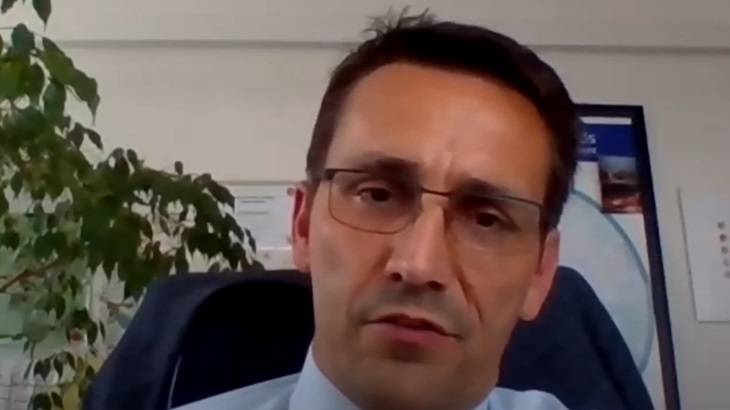Speaking on the high-level panel Driving investment towards nuclear projects on 10 September, Zronek noted the emission reduction targets suggested by the European Commission and the European Parliament of, respectively, 55% and 65%, by 2030. The forecast for 2040 by the European Nuclear Safety Regulators Group, however, suggests "big trouble" ahead, he said.
"Most countries in Europe will be hardly sufficient in power production and it will be very difficult to know where to buy or import from. Power production is now more a matter of ideology and policy than a technical issue, which creates a tough environment for construction and financing of any power source as we operate usually as stock market utilities, and we all have to meet our laws, regulations and corporate rules," he said.
"We can have national strategies, but financing any source, especially nuclear, needs governmental involvement and support. In the current environment, hardly any investment in new power sources is possible. We can forecast energy prices and sell futures [contracts] for one to three years ahead, even if to do so the market knows that prices are very volatile, and so it’s very difficult to create an economic model that is even only a few years ahead."
A governmental support mechanism is needed to help offset the construction and operation risks of new nuclear projects, he said, and referred to recent progress in the Czech Republic.
On 28 July, the Czech government approved a bill on the country's transition to low-carbon energy that will help with the construction of new units at the Dukovany nuclear power plant. The legislation is designed to regulate an offtake agreement that was signed the same day by the Ministry of Industry and Trade, ČEZ and Elektrárna Dukovany II. According to this, the state will bear the political, legislative and financing risks, while the investor bears the construction and operation risks.
The investor has to choose and negotiate a contract with the main supplier of a new nuclear power plant for Dukovany by the end of 2024. It must also ensure the necessary permits are received in time for a new unit to be put into operation in 2036.
Zronek said this offtake agreement, with financing support "coming directly from the state budget", will reduce the levelised cost of energy and reward bill payers with lower electricity prices. "It's looking for a balance between the governmental role and the investor role, and creating an environment that will create stable conditions for financing new build, which is the goal," he said.
Asked about the apparent lack of a definition for sustainable finance, he said, "We may agree to reduce the burning of fossil fuels, we may understand gas transition technology, but countries are hesitating or international organisations are hesitating to discuss the role of CO2-free nuclear, which brings uncertainty. We’re losing time in bringing a clear solution. I believe we really need a broadly agreed understanding of 'sustainable'. We need to have clearer criteria that are not spoiled by any ideology or lobbying." He added: "A strong international entity needs to lead this discussion."
A "bad example" of leadership on this topic, he said, is the European Union’s taxonomy on sustainable finance and its 'Do no Significant Harm' provisions that thus far exclude nuclear power.
"Nuclear is in a vacuum," he said, "and for a bank or an investor it's a very insecure environment to invest in this technology, so we have to look for a solution." He added: "Everybody is looking at how to reduce the cost of money and having clear criteria for 'sustainable' will help because it would at least mean fairer conditions."






_63865.jpg)
_18570.jpg)
_16159.jpg)





